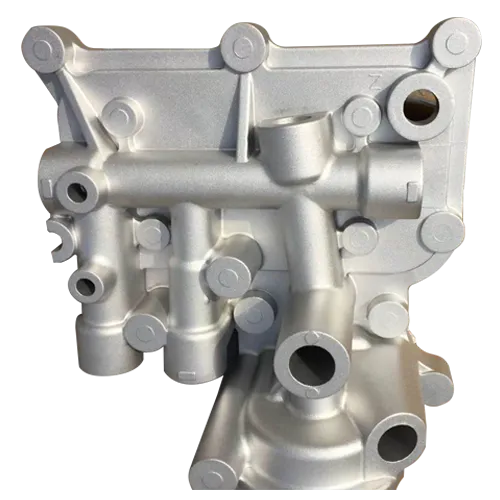Mobile:+86-311-808-126-83
Email:info@ydcastings.com
tubing caps
The Importance of Tubing Caps in Various Industries
In various industrial and commercial applications, tubing caps are essential components used to ensure the integrity and functionality of products. Often overlooked, these simple yet vital accessories play a crucial role in many fields, including pharmaceuticals, food and beverage, chemical manufacturing, and more. This article explores the significance of tubing caps, their various types, and their applications across different industries.
What are Tubing Caps?
Tubing caps are protective covers designed to seal the ends of tubes, pipes, or vials. They serve multiple purposes preventing contamination, providing a secure closure for storage and transportation, and ensuring that the contents remain uncontaminated and protected from external factors. Tubing caps can be made from various materials, including plastic, rubber, and metal, depending on the specific requirements of the application.
Types of Tubing Caps
1. Plastic Caps These are the most commonly used tubing caps due to their lightweight and cost-effective properties. They can be manufactured in various colors and sizes, making them versatile for different applications. Plastic caps are often used in the food and beverage industry to seal containers, ensuring that products stay fresh and uncontaminated.
2. Rubber Caps Rubber tubing caps offer a tighter seal compared to their plastic counterparts. They are often used in laboratories and pharmaceutical applications, where a high level of contamination prevention is necessary. Rubber caps can also withstand higher temperatures and provide excellent chemical resistance, making them suitable for various processes.
3. Metal Caps Metal tubing caps are used for products that require a more durable and secure closure. They are commonly found in the chemical industry and are designed to withstand harsh environments. Metal caps are often used for larger tubing applications where strong sealing is necessary to prevent leaks and spills.
tubing caps

4. Specialty Caps Some applications require unique forms of tubing caps, such as child-resistant caps used in pharmaceuticals or caps with specific venting properties for gases. These specialty caps ensure safety and compliance with industry regulations.
Applications of Tubing Caps
1. Pharmaceuticals In the pharmaceutical industry, hygiene and contamination prevention are paramount. Tubing caps are used to seal vials and containers, ensuring that the sterility of the products is maintained. This is critical in preventing bacterial growth and preserving the efficacy of drugs.
2. Food and Beverage When it comes to food, packaging plays a pivotal role in maintaining product quality. Tubing caps are routinely used on bottles and containers to keep food fresh and safe for consumption. They help seal in flavors and aromas, preventing spoilage and extending shelf life.
3. Chemical Manufacturing The chemical industry often deals with hazardous substances that require secure containment. Tubing caps used in this industry must provide a robust seal to prevent leaks, spills, or exposure to harmful substances. These caps are critical for maintaining safety protocols and compliance with environmental regulations.
4. Laboratories In scientific research and laboratory settings, tubing caps are indispensable for storing samples and reagents. They protect sensitive materials from contamination and evaporation, ensuring the accuracy of experiments and research results.
Conclusion
Tubing caps may seem like simple components, but their importance cannot be overstated. They are integral to the proper functioning of various industries, helping maintain product integrity, safety, and compliance with regulations. Whether in pharmaceuticals, food and beverage, chemical manufacturing, or laboratory settings, tubing caps ensure that products remain uncontaminated and secure. As industries continue to evolve and innovate, the development of advanced tubing caps that cater to specific needs will undoubtedly play a vital role in enhancing product quality and safety. Thus, investing in high-quality tubing caps is not just a matter of functionality, but a commitment to industry standards and best practices.
-
Why Is Choosing the Right Motor Housing Critical for Engine Performance?NewsJul.18,2025
-
Which Impeller Types Best Optimize Your Pump’s Efficiency?NewsJul.18,2025
-
Optimize Maintenance Efficiency with Durable Oil Catch SolutionsNewsJul.18,2025
-
Maximize Pump Performance with Precision-Engineered ComponentsNewsJul.18,2025
-
Elevate Industrial Flow Systems with Precision-Engineered ComponentsNewsJul.18,2025
-
Boost Durability and Functionality with Precision Power CastingsNewsJul.18,2025











